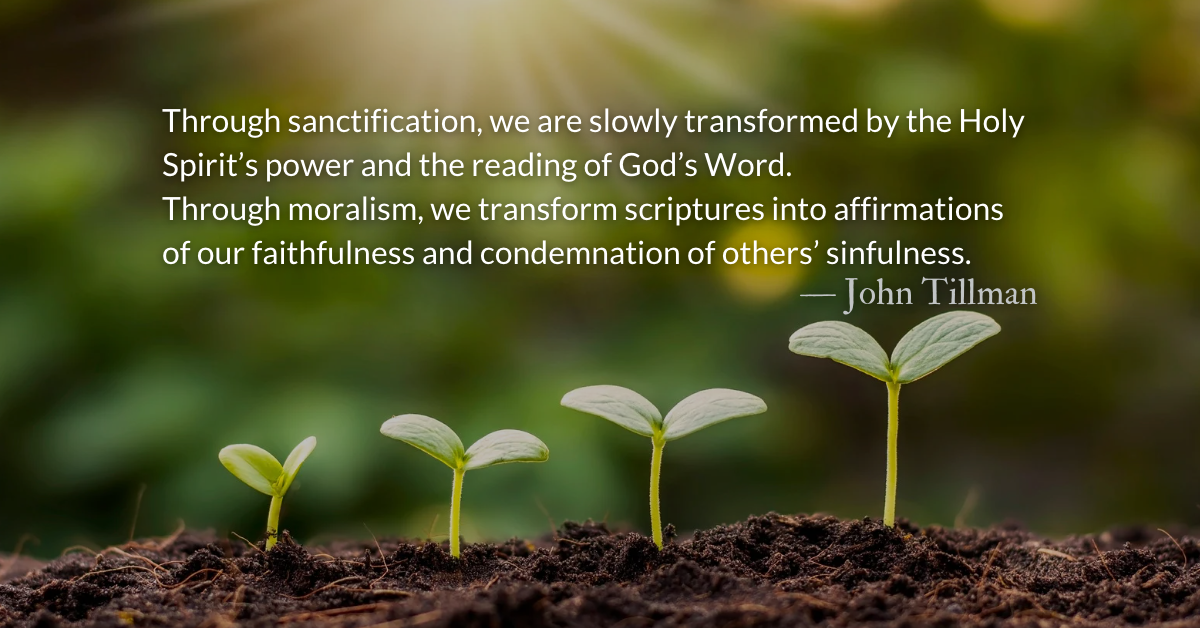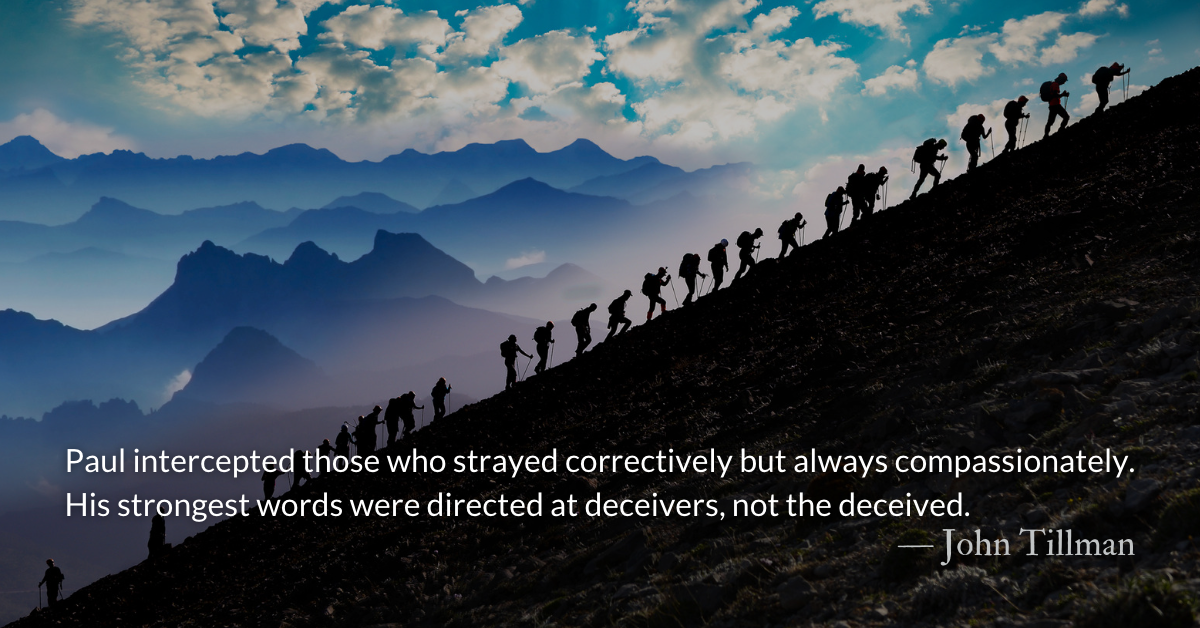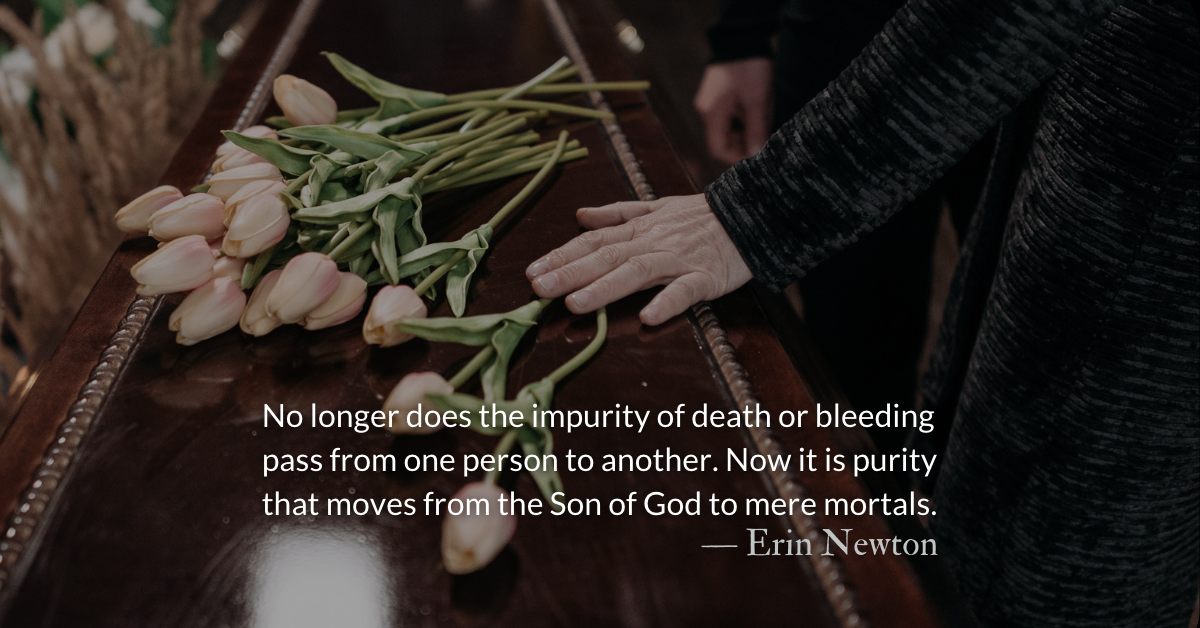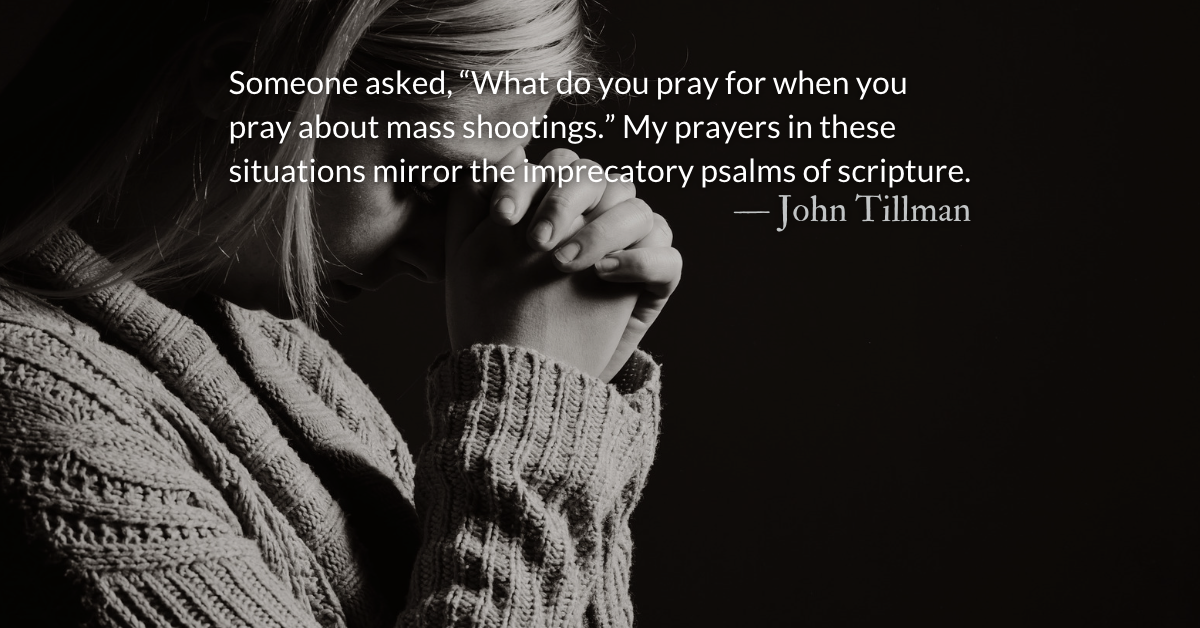Scripture Focus: 1 Thessalonians 4.1-2, 9-10
1 As for other matters, brothers and sisters, we instructed you how to live in order to please God, as in fact you are living. Now we ask you and urge you in the Lord Jesus to do this more and more. 2 For you know what instructions we gave you by the authority of the Lord Jesus.
9 Now about your love for one another we do not need to write to you, for you yourselves have been taught by God to love each other. 10 And in fact, you do love all of God’s family throughout Macedonia. Yet we urge you, brothers and sisters, to do so more and more
Reflection: More and More and Less and Less — Guided Prayer
By John Tillman
Paul uses the term “more and more“ twice in the fourth chapter of his letter to the Thessalonians. Both times he is pleased with where the believers are currently, yet hoping for and encouraging them toward more.
Sanctification is easy to confuse with moralism.
To the moralist, “more and more” means more rules and ratings.
To those being sanctified, “more and more” means fewer outward rules and more inner change.
Through sanctification, we are slowly transformed by influences beyond ourselves—the Holy Spirit’s power and the reading of God’s Word. In sanctification, we focus on change in our lives, not others.
Through moralism, we transform scriptures into affirmations of our faithfulness and condemnation of others’ sinfulness. In moralism, we focus on others’ lives, measuring ourselves against them instead of scripture.
Sanctification and moralism both introduce change, but only one is spiritual and is powered by the gospel. Let us pray this prayer that we may not be more “moral.” But that, instead, we may be more like Christ.
More and More and Less and Less
Gracious Father, we know…
We cannot do “more and more” of the things Christ calls us to without doing “less and less” of some other things.
More and more of Christ in our life means less and less of us. He must become greater and we must become less.
Give us more and less, Father…
More of Christ’s love for others less of our love of self.
More of Christ’s grace for others and less of our grudging forgiveness.
More of Christ’s hatred of sin and less of our hatred of those whose sins differ from ours.
More of Christ’s Word, the Bible, and less of the algorithmic sales machines that social media has become.
More of spreading the gospel’s good news and less of spreading the worst news we can find about our enemies.
We know that we will be at our happiest, at our most fulfilled, and at our most true self when we continually surrender more and more to the leading of the Holy Spirit.
No Christian is ever perfect until perfectly conformed to Christ. Conform us, Lord.
No Christian is ever righteous without the righteousness of Christ. Make us righteous, Lord.
No Christian can say, “It is finished.” Christ came to say it for us. Finish your work in us, Lord.
Divine Hours Prayer: The Refrain for the Morning Lessons
Purge me from sin, and I shall be pure; wash me, and I shall be clean indeed. — Psalm 51.8
– From The Divine Hours: Prayers for Springtime by Phyllis Tickle.
Today’s Readings
Numbers 24 (Listen 3:37)
2 Thessalonians 1 (Listen 1:52)
Read more about Balaam’s Success
Balaam’s strategy of people-pleasing pandering to powerful politicians is still alive today. So are his methods of deceit and temptation.
Read The Bible With Us
It’s never too late to join our Bible reading plan. Immerse in the Bible with us at a sustainable, two-year pace.











